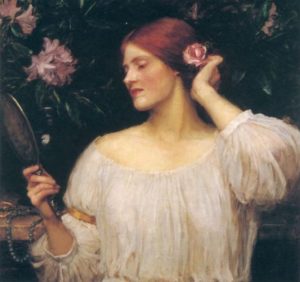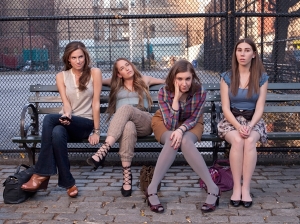here is my entire “A Story Like Mine” poem from today’s #WomensMarch2018 in NYC tw: rape / assault. Thank you. pic.twitter.com/l3fji73woM
— h (@halsey) January 20, 2018
We highly recommended watching Halsey’s incredible performance. If you are unable to listen, you can read the transcript full transcript below via Billboard.
It’s 2009 and I’m 14 and I’m crying
Not really sure where I am but I’m holding the hand of my best friend Sam
In the waiting room of a Planned Parenthood
The air is sterile and clean, and the walls are that not grey, but green
And the lights are so bright they could burn a whole through the seam of my jeans
My phone is buzzing in the pocket
My mom is asking me if I remembered my keys ’cause she’s closing the door and she needs to lock it
But I can’t tell my mom where I’ve gone
I can’t tell anyone at all
You see, my best friend Sam was raped by a man that we knew ’cause he worked in the after-school program
And he held her down with her textbook beside her
And he covered her mouth and he came inside her
So now I’m with Sam, at the place with a plan, waiting for the results of a medical exam
And she’s praying she doesn’t need an abortion, she couldn’t afford it
And her parents would, like, totally kill herIt’s 2002 and my family just moved and the only people I know are my mom’s friends, too, and her son
He’s got a case of Matchbox cars and he says that he’ll teach me to play the guitar if I just keep quiet
And the stairwell beside apartment 1245 will haunt me in my sleep for as long as I am alive
And I’m too young to know why it aches in my thighs, but I must lie, I must lieIt’s 2012 and I’m dating a guy and I sleep in his bed and I just learned how to drive
And he’s older than me and he drinks whiskey neat and he’s paying for everything
This adult thing is not cheap
We’ve been fighting a lot, almost 10 times a week
And he wants to have sex, and I just want to sleep
He says I can’t say no to him
This much I owe to him
He buys my dinner, so I have to blow him
He’s taken to forcing me down on my knees
And I’m confused ’cause he’s hurting me while he says please
And he’s only a man, and these things he just needs
He’s my boyfriend, so why am I filled with unease?It’s 2017 and I live like a queen
And I’ve followed damn near every one of my dreams
I’m invincible and I’m so fucking naive
I believe I’m protected ’cause I live on a screen
Nobody would dare act that way around me
I’ve earned my protection, eternally clean
Until a man that I trust gets his hands in my pants
But I don’t want none of that, I just wanted to dance
And I wake up the next morning like I’m in a trance and there’s blood
Is that my blood?
Hold on a minuteYou see I’ve worked every day since I was 18
I’ve toured everywhere from Japan to Mar-a-Lago
I even went on stage that night in Chicago when I was having a miscarriage
I mean, I pied the piper, I put on a diaper
And sang out my spleen to a room full of teens
What do you mean this happened to me?
You can’t put your hands on me
You don’t know what my body has been through
I’m supposed to be safe now
I earned itIt’s 2018 and I’ve realized nobody is safe long as she is alive
And every friend that I know has a story like mine
And the world tells me we should take it as a compliment
But then heroes like Ashley and Simone and Gabby, McKayla and Gaga, Rosario, Aly
Remind me this is the beginning, it is not the finale
And that’s why we’re here
And that’s why we rally
It’s Olympians and a medical resident and not one fucking word from the man who is President
It’s about closed doors and secrets and legs and stilletos from the Hollywood hills to the projects in ghettos
When babies are ripped from the arms of teen mothers and child brides cry globally under the covers
Who don’t have a voice on the magazine covers
They tell us take coverBut we are not free until all of us are free
So love your neighbor, please treat her kindly
Ask her story and then shut up and listen
Black, Asian, poor, wealthy, trans, cis, Muslim, Christian
Listen, listen and then yell at the top of your lungs
Be a voice for all those who have prisoner tongues
For the people who had to grow up way too young
There is work to be done
There are songs to be sung
Lord knows there’s a war to be won




